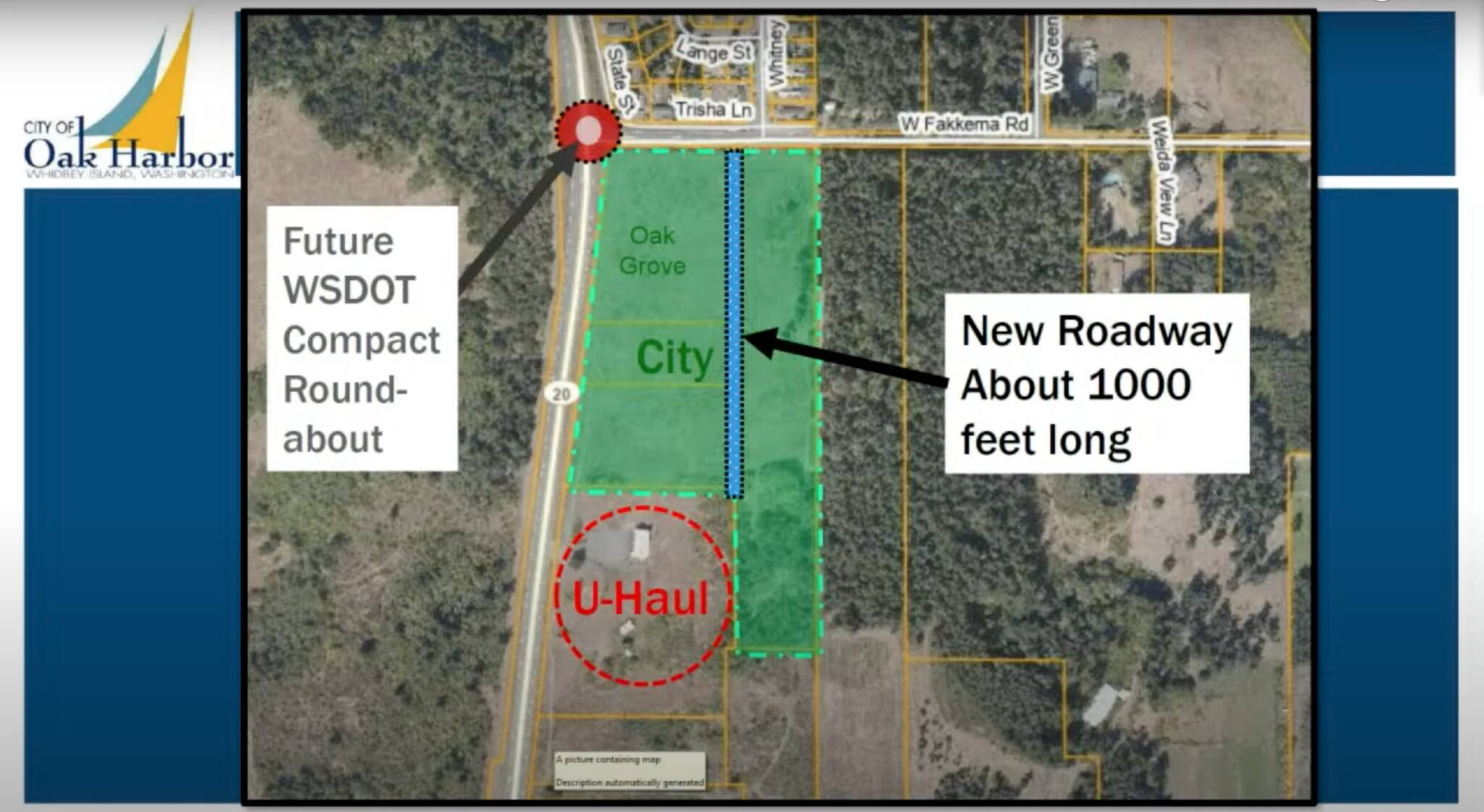The city of Oak Harbor has approved the construction of an access road for a U-Haul facility on the north end of town.
In the end, the city will pay only a portion of the cost of the new road. A total of $480,000 was originally set aside in the city’s 2021-22 budget while the latest cost estimate ballooned to a whopping $810,088.
In December of 2021, the News-Times reported that the project sparked controversy when questions were raised about why the city would pay for the road when developers normally pay for such infrastructure. At the time, staff argued the city should support financing the road as it was envisioned as an economic development tool to encourage development on a highly visible piece of land off Highway 20.
During Tuesday’s city council meeting, Councilmember Bryan Stucky said the city has come a long way with this project and wanted to make it clear that the $250,000 is not being provided by taxpayers.
Finance Director David Goldman confirmed that the money is coming from impact fees, which developers pay to offset the impact that new development has on the infrastructure of a city.
“Impact fees must be used for expansion. They can’t be just for maintenance,” Goldman said.
The road would go from the U-Haul property to Fakkema Road and be about 1,000 feet in length. The road would also serve the four city parcels adjacent to the U-Haul property.
Public Works Director Steve Schuller said the Washington State Department of Transportation is planning to build a compact roundabout at Highway 20 and Fakkema near the property in a “couple of years.”
Schuller said that U-Haul will first complete a private project of installing a temporary aggregate, or gravel, roadway and making stormwater improvements. Upon city approval, U-Haul can then use that roadway for business access. The city is asking U-Haul to complete the road by Dec. 31, 2024.
Schuller pointed out that the city is not obligated to improve upon the temporary roadway. If the city does decide to continue with the project, there will be a public bid to add asphalt pavement to the road.
Schuller said the city will not pay more than $200,000 in paving costs, leaving $50,000 to deal with a water line on Fakkema Road. Schuller said he hoped to simply protect the water line by putting a casing over it.
“U-Haul has already seen this agreement and already executed it,” Schuller said.
The motion to approve the memorandum of understanding with U-Haul passed unanimously.


